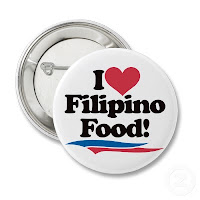Sometimes I wonder if our mainstream media is really that naive, or simply incapable of reporting news on international relations, even just the affairs (particularly, political economy) of our neighboring countries in Southeast Asia....
The other day, I watched in the news featuring PNoy's meeting with Malaysia's Prime Minister Najib as if Malaysia is also supporting the Philippine territorial claims against China.... Our media may be underestimating how powerful and important (economically, at least) China is now in the region (in the world, indeed) and how ASEAN does not want to antagonize its relations with China....
Here are the facts: China is now the biggest trading partner of ASEAN and will soon become the biggest investor in all ASEAN countries; and by 2009, Malaysia has become the largest trading partner of China among ASEAN countries.
The point is: authoritarian-capitalist states of Singapore and Malaysia will never ever antagonize their authoritarian-capitalist counterpart benefactor and idol, China, at this point. And the truth is: not for the Philippines, which is really not that important for these emerging and industrializing economies.
There is a difference on the reception of China between PNoy and Najib when both assumed state leadership in 2010 and 2009, respectively: PNoy visited China; Najib was invited by China. The Philippines does not have a clear development strategy towards Chinese capital; Malaysia is more conscious of integrating Chinese capital into its accumulation regime. This is where having national industrialization as a development strategy (i.e., Malaysia) makes a startling difference in, among others, international economic and political relations.
I don't think that PNoy should have spent that much (PHP 15 million) for the attendance of his economic team in the APEC. PNoy only got a meeting with who - Chile and the three ASEAN countries Malaysia, Singapore, and Vietnam? Countries which PNoy's team could have met outside the APEC? The team was frustrated when they were not able to meet with China, whose appointment books must have been full as all APEC countries would like to secure a share of Chinese capital.
I would have hoped that even from a capitalist point of view, PNoy's economic team would be able to strategize a Philippine capitalism with Chinese characteristics. Aside from the well-recognized problem of the PNoy administration on the implications of the territorial disputes at the West Philippine Sea for Philippine-China economic relations and even though we are doing better now in 'good governance', I believe that a more fundamental structural problem why the Philippines is having difficulties in attracting Chinese capital has to do with our economic development strategy.
My sense is that, thus far, PNoy's 'de-Gloriazation' efforts have been limited to 'political' reforms - i.e., the restoration of integrity in our democratic institutions - but has not yet extended to 'economic' reforms. Here is my framing of PNoy's economic strategy: it's basically, neoliberalization à la Gloria with good governance. To be candid about it: PNoy's good governance is simply a thin icing on a largely neoliberalism-à-la-Gloria cake. Remember Gloria's formula to gain positive growth rate computation, mainly: OFW-dependence (labour-export strategy) + huge public spending + BPOs (call centers). And yes, lest we forget, add CCT initiated during Gloria's presidency as a central poverty reduction programme. But how about exports of value-added manufacturing goods - a big question mark???
I am not saying that these economic strategies of Gloria should be abandoned altogether, but it is to challenge PNoy to have some value-added on his development strategy that directly alters the economic structure. Our service-oriented economy is already a very depressed market that does not offer a great variety of labour specialization and which is not able to sustain, let alone increase living standards of, 90+ million Filipinos. No wonder that we cannot attract Chinese capital or generally increase FDIs and international private capital flows into the Philippine economy.
I have always argued that it's the 'mode of production' that should be the foremost concern of our development strategy. We have to produce things and ideas. Things and ideas with value - that is, technology-intensive and conducive to innovation. At this historical moment of global economic crisis and climate change, there are big windows of opportunity for alternative futures — towards ecological production systems, green technology, sustainable communities, etc. We have to produce wealth first for the nation before our promises of redistribution or redistributive justice earn credibility and legitimacy from the hopeful people of the Philippines.









